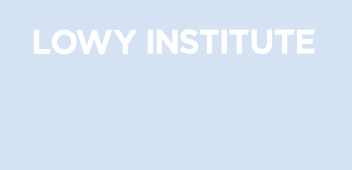Western liberalism’s crisis is self-inflicted
Originally published in The Australian.

Two broad narratives of international relations have emerged in recent years. The first is that the liberal, rules-based order is on its knees. Post-Cold War illusions of positive-sum co-operation have been shattered. The nation state is back. Geopolitics is king. And great power rivalry once again defines world affairs.
The second narrative asserts that a rising China and a resurgent Russia are the main culprits in the destabilisation of global order. They act in flagrant defiance of its norms: threatening their neighbours, exporting authoritarianism, subverting democratic processes and undermining multilateral institutions. Moreover, they are not just individually malign; their burgeoning partnership has a multiplier effect, compounding the threat to the liberal order and the global primacy of the US.
These related narratives shape much of Western policymaking today. They are central to the Trump administration’s openly combative approach towards Beijing, to the growing European pushback against China, the heightening of tensions in the Asia–Pacific region and the continuing alienation between Russia and the West.
Against this backdrop, the coronavirus pandemic has burst upon the world — the first truly universal event since the end of World War II and the dawn of the atomic age.
The implications for global order are not clear. In the first months of the pandemic, there was a view that coronavirus represented a potential world-changer — a chance to re-examine assumptions about global governance and the way we lead our lives. But as countries become accustomed to the presence of COVID-19, a counter-narrative has taken hold, with the virus acting not as a circuit-breaker, but as an accelerant to existing trends.
Recent events support a pessimistic prognosis. US-China relations are toxic. The transatlantic consensus is on life support. Multilateral institutions, from the World Health Organisation to the EU, are struggling to prove their worth.
But the international situation, while critical, is also dynamic. The challenges are huge but not insuperable.
Contrary to the naysayers, there is a future for liberalism in the 21st century. But to achieve this, we need to recognise a number of realities.
First, the values, norms and institutions of liberalism are in crisis. Many Western policymakers and thinkers remain in denial. They appear to believe that with some adjustments — a change of US president, more transatlantic unity, getting tough on China, and perhaps an accommodation with Russia — ‘‘normal’’ service can be restored.
Yet the problems of the liberal order run far deeper than these hopeful prognoses suggest.
Second, despite vociferous claims to the contrary, Beijing and Moscow are not engaged in a multi-dimensional plot to undermine the global order.
Chinese and Russian actions have at times been disruptive and destabilising. But they scarcely amount to a conscious or co-ordinated strategy to build a new authoritarian world.
Third, the crisis of the liberal rules-based order has been largely self-inflicted, an exercise in suicidal statecraft sustained over the best part of two decades, and culminating in the excesses of Donald Trump. To blame external forces for these troubles is to confuse cause and effect. The real issue is a Western failure to live up to the principles of liberalism, exacerbated by gross policy misjudgments and fraying transatlantic and European unity.
Finally, a fundamental rethinking of global governance is well overdue. The future does not lie in the return to dominant US leadership, great power competition or accommodation, or the post-Cold War utopia of a geopolitics-free world. These are all false gods. The way forward lies in a more inclusive and flexible order, driven by a common imperative in meeting universal challenges, such as climate change, pandemic disease and global poverty. Such an enterprise will be contentious and chaotic. But there is no alternative.
Bobo Lo is a non-resident fellow at the Lowy Institute. This extract is drawn from his paper, Global Order in the Shadow of the Coronavirus, to be published on Wednesday.


